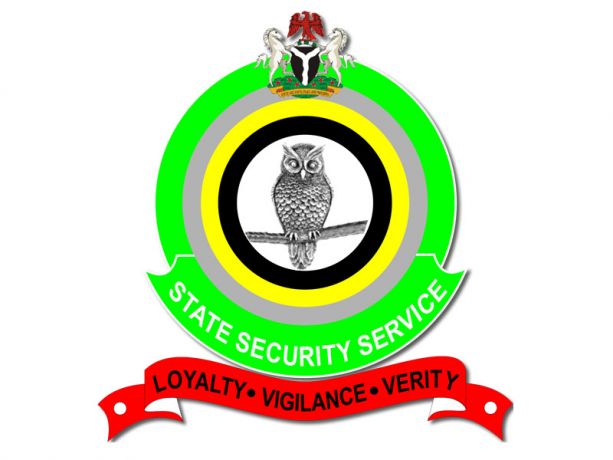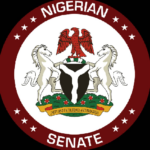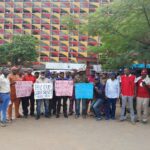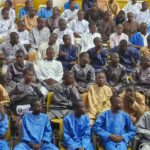The title of this piece remains the question which not a few Nigerians would be asking or even ruminating over in their minds, following the recent statement(s) from the Department of State Services (DSS).
In a recent series of statement(s) signed by its spokesman Peter Afunanya the agency had alluded not only to the portends of the country going through another round of disruption of governance, especially with plans by the culprits to launch a series of initiatives comprising court injunctions, mass protests and other disruptive tendencies incudidng fostering an interim government to scuttle the swearing in of the winner of the Presidential polls of February 25 2023, Ahmed Bola Tinubu of the All Progressives Congress (APC).
By the letters of the DSS message the opposition seems to be fingered for the development, and is in the firing line of the agency. This posture corroborates the circumstance that it was the ruling APC that is prodding the DSS on this coup matter.
Given the critical role of the DSS in the fortunes of the Nigerian state as its ‘guardian angel’ of sorts, the agency’s pronouncements carry the weight of gospel truth. Hence any alarm from it as the statement constitutes, is not a matter to be trifled with for many reasons.
Towards sustaining and empowering retirees
Five gains, failures of the Buhari eight years
Firstly, the portends that some elements in the country were actually planning to stage a coup or some form of disruption in governance in order to vitiate the follow-through to the outcome of the recent presidential polls which were won by Ahmed Bola Tinubu, goes beyond a campaign against the man as an individual. By the circumstance of his electoral victory, he is now a government ‘pikin’, with any scheme of truncating his swearing in constituting a declaration of war against the entire country.
Secondly since 1993, when General Sani Abacha led the last successful military coup to seize power from Chief Ernest Shonekan’s interim National Government (ING), Nigerians have been spared the trauma of waking up one morning to hear that the government in power had been thrown overboard and overnight by a group of power mongers – just like that.
Most Nigerians of the younger generation may not easily appreciate the incongruities associated with military coups – especially when such do not succeed, and lead to serial blood-letting in the military as various groups contend with each other to eliminate ‘rivals’ – all in the name of ‘cleansing’ the system of ‘bad eggs’. While the twists which such a development would engender in the country’s military are deleterious, the impact on the wider society proves more devastating as everything in the country comes to a standstill, and waits for new operational orders from the new actors in power. This is the harrowing scenario which the DSS announcement conjures.
Juxtaposing the DSS alarm with the country’s gains in democratic rule since 1999 – scanty as it may seem, also offers an interesting scenario, given its timing, content and eventual impact. Firstly, it came in the trail of the recent presidential polls, which result are still widely contested and sundry petitions filed in various law courts. This means that the ultimate results of the polls may still be considered to be in abeyance, in spite of the declaration of Bola Ahmed Tinubu of the APC as the winner. The situation therefore demands that all parties including the DSS should maintain the status quo, until the courts have discharged the various petitions.
In the same vein, the intervention of the courts should also not mean that all needful processes of governance that fall within the purview of the DSS and which would aid the inception of the new administration should be left in abeyance. This is why the onus still falls on the DSS to be proactive, in serving as the country’s ‘guardian angel’ especially in the context of this new matter.
Hence, with the DSS statement seemingly pointing accusing fingers at the opposition rather arbitrarily as likely to be behind plans to scuttle the polls outcome, such clearly falls within the terrain of presumptions. The agency therefore needs to acquit itself of any insinuation that it may have taken sides in the partisan political drama of the polls, even before the courts have exhausted their processes.
While it may even be argued that the DSS, in responding to the mood of the nation needs to be proactive and hence provide the early warning to let the country know of the nefarious development of another round of rumours and plots of coups, the effort here offers too much talk and little action. Coup related activities in their entirety, constitute pure treason and should be treated as such. Even instances of mere contemplations of coup exercise, should be seen with the seriousness they deserve while remediation and interdictory action should be taken ahead of the attempt. That is also why and where the DSS also needs to let the country know who the culprits are by now.
With respect to the impact of rumours or actual attempt at coup plotting on the country’s nascent democracy, the picture is crystal clear. Nigeria is still ripe for any turbulence and the coast is not yet clear. This is because the very factors that led to previous coups including poor change management culture, are still very much prevalent in the country. This renders instructive, a popular political adage which states that ‘where peaceful change remains impossible in a society, violent revolution becomes inevitable’. That is because change is the very oxygen for a viable society.
It is in that context that the DSS needs to be more discretional in managing coup rumours and plots, as the matter of commitment of leadership in Nigeria to meaningful change is still a volatile issue. Organs of the state therefore need to demonstrate unmistakable posture of non-partisanship in their carriage and utterances in public. For instance who says that its only opposition parties that may be against the political ascendancy of Tinubu? In all probability there could even be members of the APC – his political party that may not be comfortable with his likely swearing in as the next president of the country. What about that then?

 Join Daily Trust WhatsApp Community For Quick Access To News and Happenings Around You.
Join Daily Trust WhatsApp Community For Quick Access To News and Happenings Around You.


